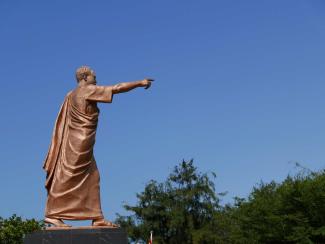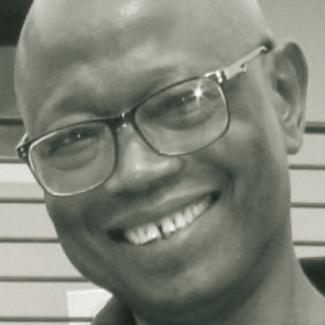Governance
Why African countries must foster democratic civic cultures
 picture-alliance/Rita Funk
picture-alliance/Rita Funk
There is a pattern of explaining contemporary authoritarianism in Africa as the legacy of imperialist European rule in the colonial era. It misses the failure of African independence leaders to abandon that legacy. Colonialism ended two generations ago in West Africa, but many countries still lack a civic culture that emphasises representative democracy, the rule of law and human rights.
The big irony of decolonisation was that, once in power, the leaders of freedom movements adopted European perspectives. Colonial bureaucrats had kept saying that Africans were unable to rule themselves. The independence leaders retorted that this idea was racist and that democracy would certainly prove viable in Africa.
Then they changed their mind and established one-party systems with life-long presidencies. Firmly in office, they opted for monolithic ideologies with labels like “African socialism” or “Africanité”. Even Kwame Nkrumah, the sophisticated intellectual who led Ghana to independence in 1957, opted for unquestioned personal authority – until the military toppled him in 1966.
In Africa, religion matters. Ideas of human rights and rule-bound government coincide with fundamental principles of the monotheistic faiths. After all, the holy scriptures demand truthfulness, respect for one another and non-violent resolution of disputes. African leaders, however, like pretending to be appointed by God and accountable only to him.
Some progress made
Things do not have to be like this. Some African countries have made considerable progress, Ghana for example. In the 1980s, opposition to military rule grew. Civil-society and faith-based organisations demanded freedom and networked successfully, so Jerry Rawlings, the military dictator, eventually had to run for office in a general election. Since 1992, Ghana has seen regular free elections every four years. Several of them resulted in peaceful transfers of power.
Ghana’s civil society has become stronger. It now includes a multitude of organised interest groups. They take part in public discourse. The consensus is that democracy serves the nation well. Free media reinforce this perspective, and so do educational institutions.
On the other hand, three West African countries – Guinea, Mali and Burkina Faso – are currently under military rule again. Democracy is not deeply entrenched in the region, so further setbacks are possible.
Fostering a democratic civic culture is a duty of the state. Citizens must learn what their constitution entails, what free and fair elections are and why democratic rule is not so much about a dominant party imposing its will than about reaching compromise among diverging interests. Such knowledge must be taught in schools.
Public education matters
Where a state fails to fulfil these educational duties, civil-society activism can make a difference, especially when well-coordinated. Independent organisations can promote democratic values and put pressure on governments to live up to their duties. Entrenching democracy in good times is easier than opposing a dictatorship, which is obviously much harder and painful.
The international community, of course, can play a supportive role too. Unfortunately, bilateral and multilateral donor agencies tend to focus too much on their agreements with national governments, and pay too little attention to how civic culture is developing on the ground. That is so even when they fund programmes intended to promote better governance.
Moreover, high-income countries must do more to set the right example themselves. Africans see how right-wing populism is threatening western democracies. They notice that Donald Trump, the former US president with strong autocratic tendencies, so far enjoys impunity even after the insurgency of 6 January 2021. Africa needs democratic rule and must defend it. That applies to high-income countries too.
Baba G. Jallow is the inaugural Roger D. Fisher fellow in negotiation and conflict resolution at Harvard University’s law school and the former executive secretary of Gambia’s Truth, Reconciliation and Reparations Commission (TRRC). He launched the independent Never Again Network in his home country after the end of the TRRC mandate.
gallehb@gmail.com

